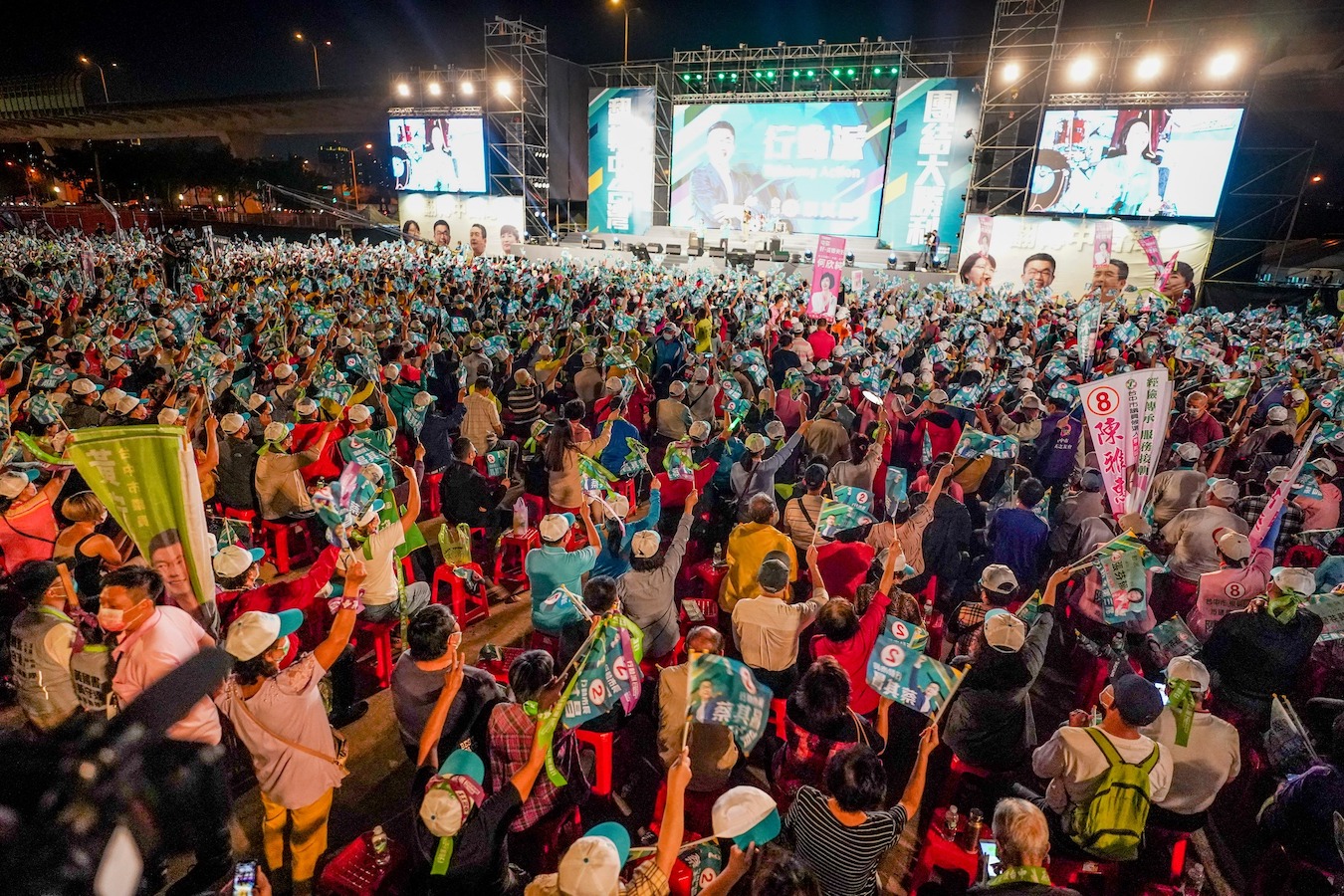by Brian Hioe
語言:
English
Photo Credit: DPP/Facebook
THE PRESENT ELECTION cycle has been, if nothing else, characterized by a great degree of political scandal. Indeed, as a consequence, many races have boiled down to the personalities running for office, rather than their policies. To this extent, both DPP and KMT have sought to leverage on the scandals of the other camp.
The most prominent scandal of the early election cycle was the plagiarism charges that faced the DPP’s Taoyuan mayoral candidate, former Hsinchu mayor Lin Chih-chien. Lin was accused of having plagiarized his master’s thesis from National Taiwan University from another student. Though Lin’s advisor, National Security Bureau director-general Chen Ming-tong, defended him, a committee convened by the university–Taiwan’s most prestigious educational institution– recommended that Lin’s master’s degree be invalidated.
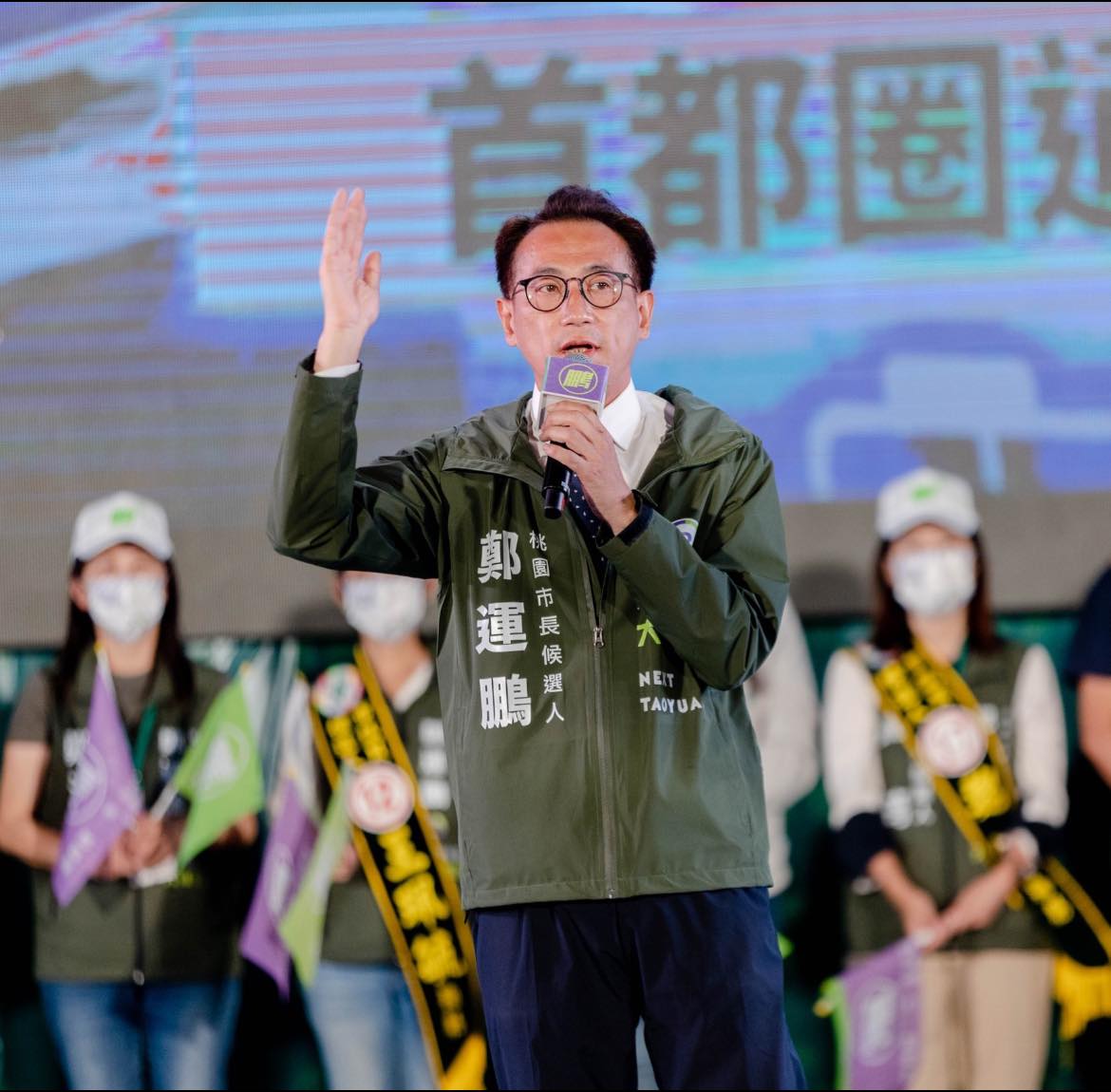
DPP legislator and Taoyuan mayoral candidate Cheng Yun-peng. Photo credit: Cheng Yun-peng/Facebook
Subsequently, Lin withdrew from the Taoyuan mayoral race, and was replaced by legislator Cheng Yun-peng. At the height of the scandal, backlash against Lin threatened to drag down the DPP in other races.
The thesis plagiarism scandal even overshadowed a number of high-profile corruption charges against KMT politicians such as Yilan county magistrate Lin Zi-miao and Hualien county magistrate Hsu Chen-wei. Lin was accused of improper financial dealings regarding property development on rezoned protected land that was later sold to a relative, as well as regarding checks worth over 100 million NT received by Lin in a twenty-year period from former KMT legislator Yang Chi-hsiung.
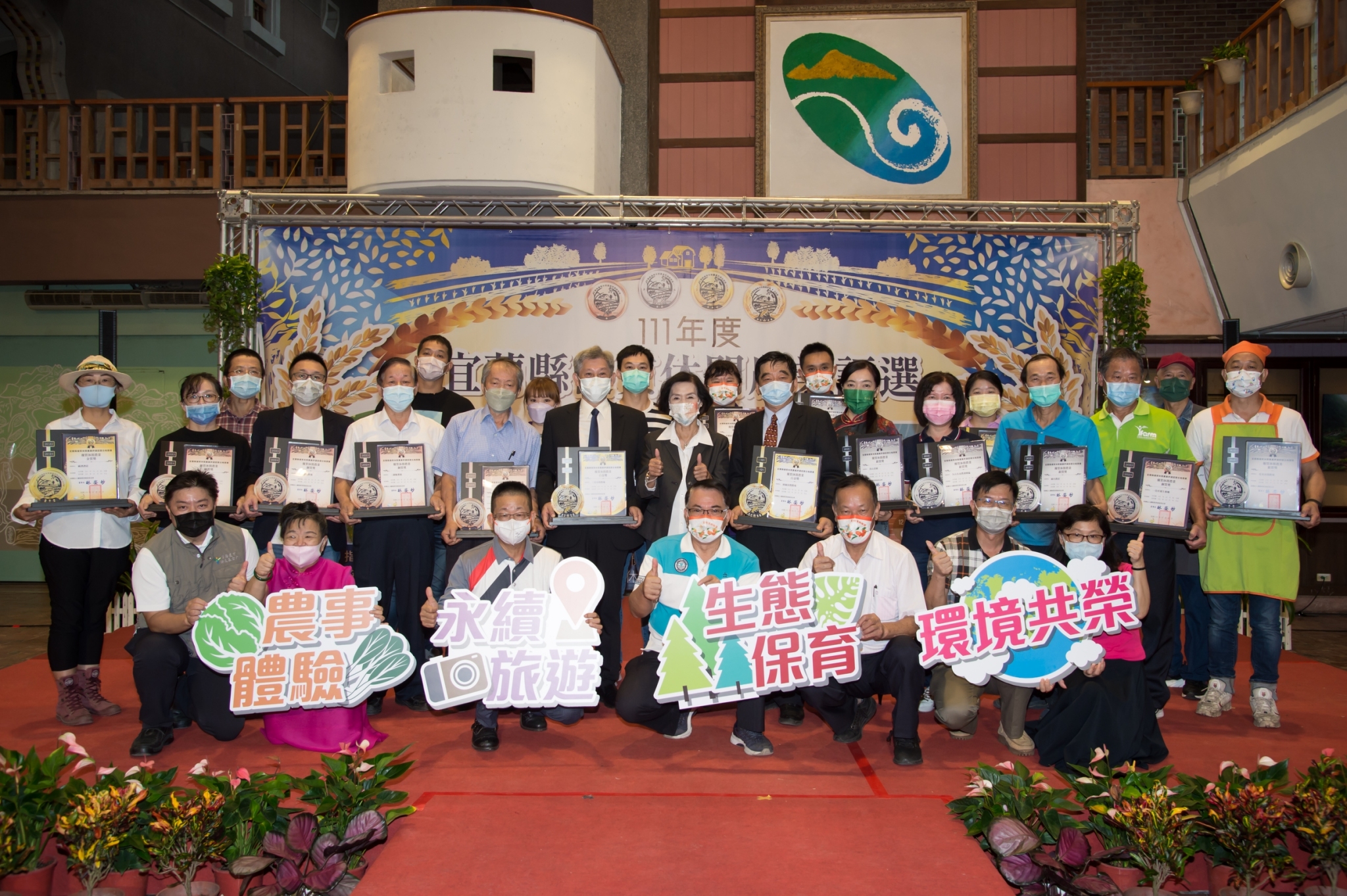
Yilan county magistrate incumbent and KMT candidate Lin Zi-miao (center). Photo credit: Lin Zi-miao/Facebook
As for Hsu, she originally came to power when her husband, then-Hualien county magistrate and current Hualien legislator Fu Kun-chi, was to be jailed on corruption charges. Fu divorced her and named her deputy county magistrate so that she could continue ruling Hualien in his stead. Apart from insider trading charges, Fu also faces charges for attempting to pay off the media for positive coverage. Most recently, Hsu and Fu were accused by KMT Taipei city councilor Hsu Chiao-hsin of vote buying in the KMT central committee election, seeing as both were among the frontrunners of the election in a suspicious manner.
Nevertheless, after the Lin controversy, one saw a number of plagiarism charges slung against both pan-Blue and pan-Green candidates, Among those accused of plagiarism include Lin’s original opponent, Simon Chang of the KMT, legislators Ann Kao and Tsai Pi-ru of the TPP, as well as Nantou County commissioner candidate Hsu Shu-hua and Nantou County Council Speaker Ho Shang-feng both of the KMT, and Tsai Shih-ying, the DPP’s Keelung mayoral candidate. Tsai Pi-ru resigned from her post as legislator over the charges.
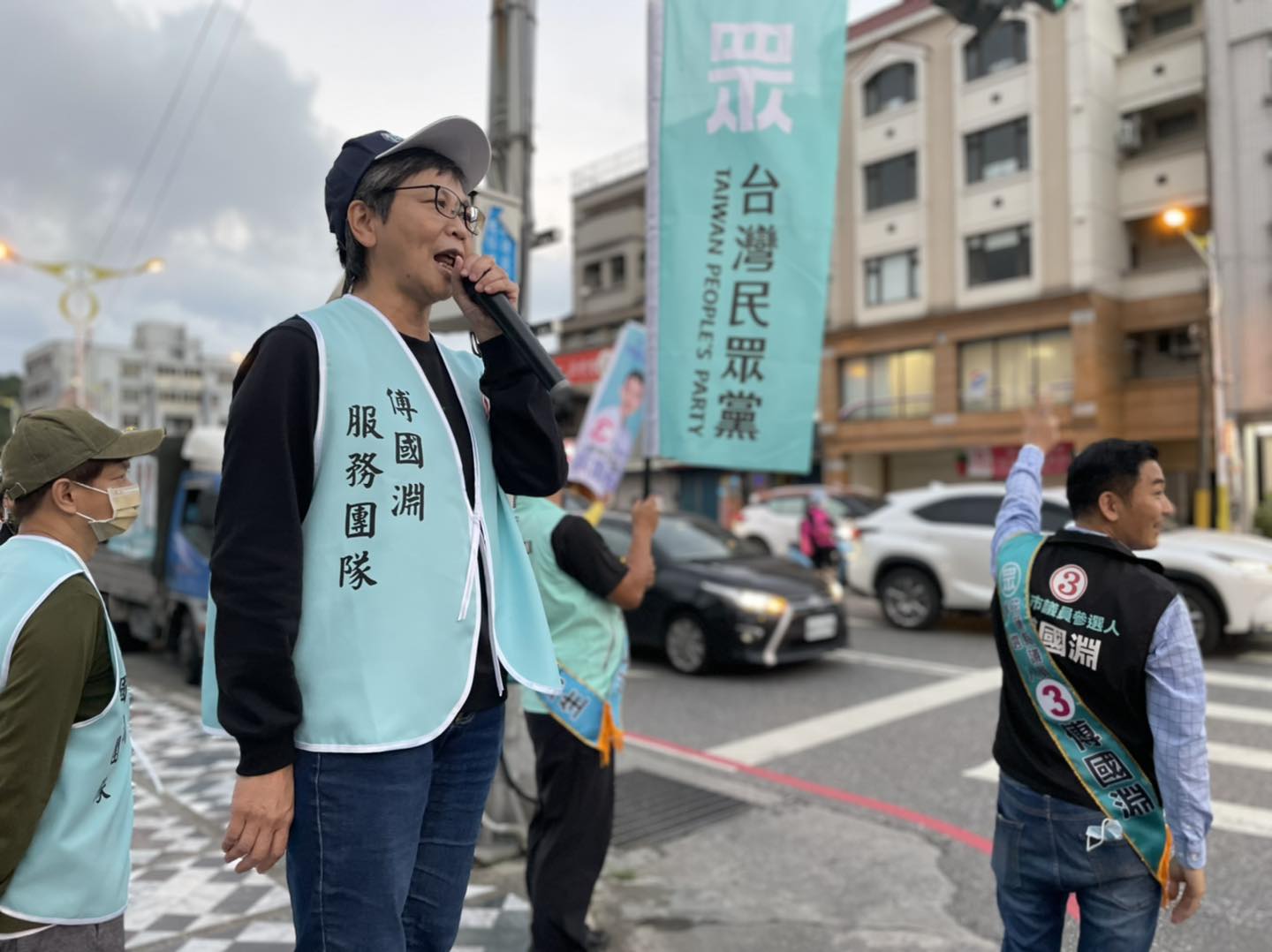
Former TPP legislator Tsai Pi-ru. Photo credit: Tsai Pi-ru/Facebook
The spate of plagiarism charges likely took some of the heat off of the DPP in the wake of the Lin controversy. In the meantime, the DPP took the tack of trying to attack the KMT on the issue of corruption. Namely, midterm elections in Taiwan tend to be about local issues, rather than cross-strait policies, and so unlike the 2020 elections, the DPP was unable to lean into cross-strait issues to attack the DPP.
For its part, the KMT responded via angles of attack on the DPP that it has used in past months, such as attacking the Tsai administration’s response to COVID-19, or the Tsai administration opening up Taiwan to food imports from Fukushima or ractopamine-treated pork from the US.
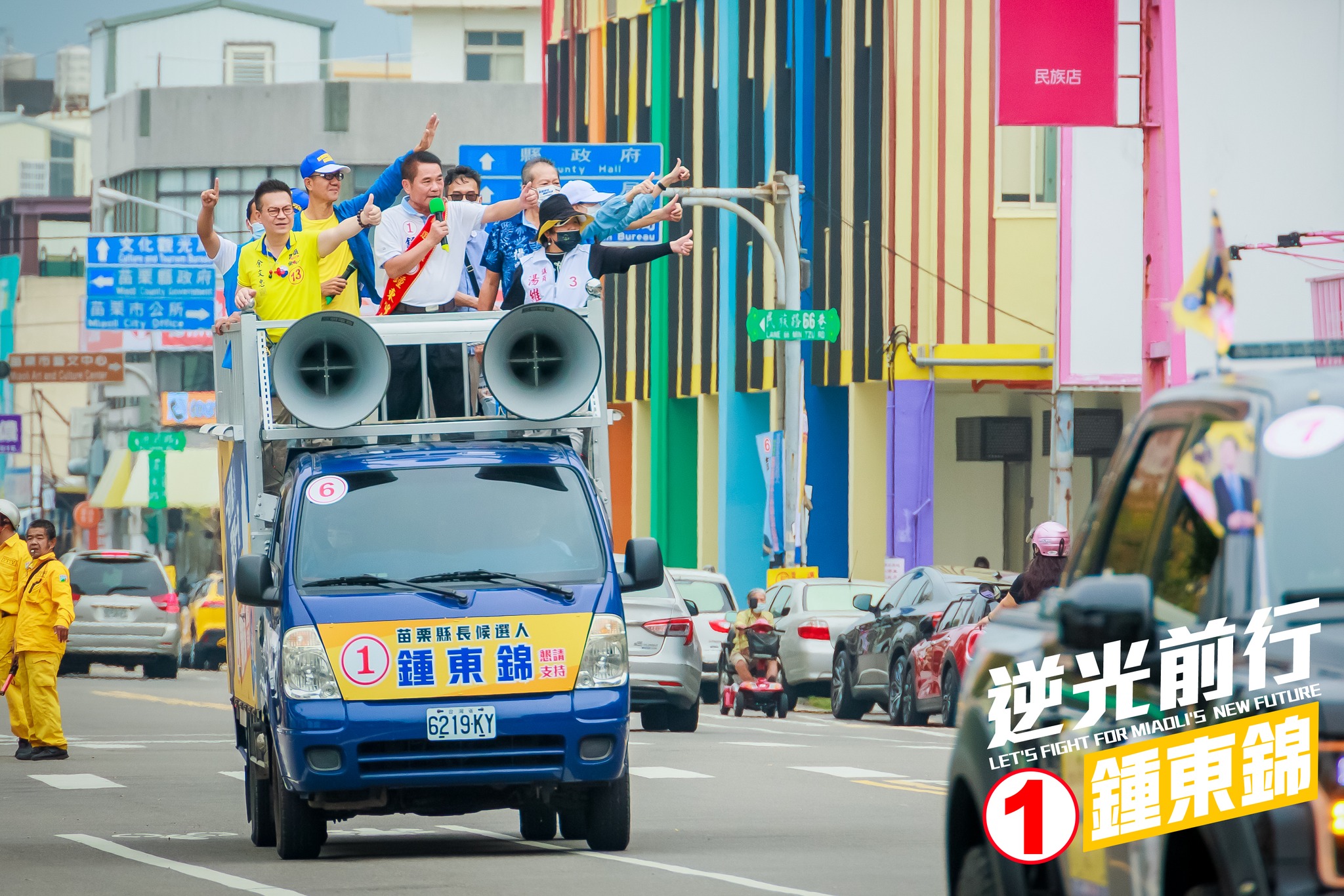
Chung Tung-chin while campaigning on a speaker truck. Photo credit: Chung Tung-chin/Facebook
The DPP leaned harder into attacking the KMT over the issue of corruption after the gang-related murder and assault charges emerged with regard to Miaoli county independent magistrate candidate Chung Tung-chin. Chung is backed by the KMT incumbent Hsu Yao-chang, who broke from the KMT’s central leadership to endorse Chung, seeing as the KMT is instead running Hsieh Fu-hsiung. But Chung is a former KMT member and his endorsement by Hsu makes it easy to associate his past history of gang-related violence with the KMT, particularly in light of “black gold” ties between the KMT and gangsters dating from the authoritarian period, and the KMT’s use of gangsters as political enforcers during the White Terror. Chung’s defense has been memorable, comparing himself to Mandela.
It may, however, be the “light blue” third party of the TPP that has been most severely affected by scandals and controversies. Apart from that TPP legislator Tsai Pi-ru resigned from her post over plagiarism charges, fellow TPP legislator Ann Kao–the TPP’s Hsinchu mayoral candidate–has proved particularly scandal-ridden. Apart from that Kao faces self-plagiarism charges over re-using materials from government-funded research she worked on for her Ph. D dissertation, Kao is also under fire for embezzling subsidies meant for legislative assistants through her boyfriend–a married man who works as her assistant that she may be having an affair with.
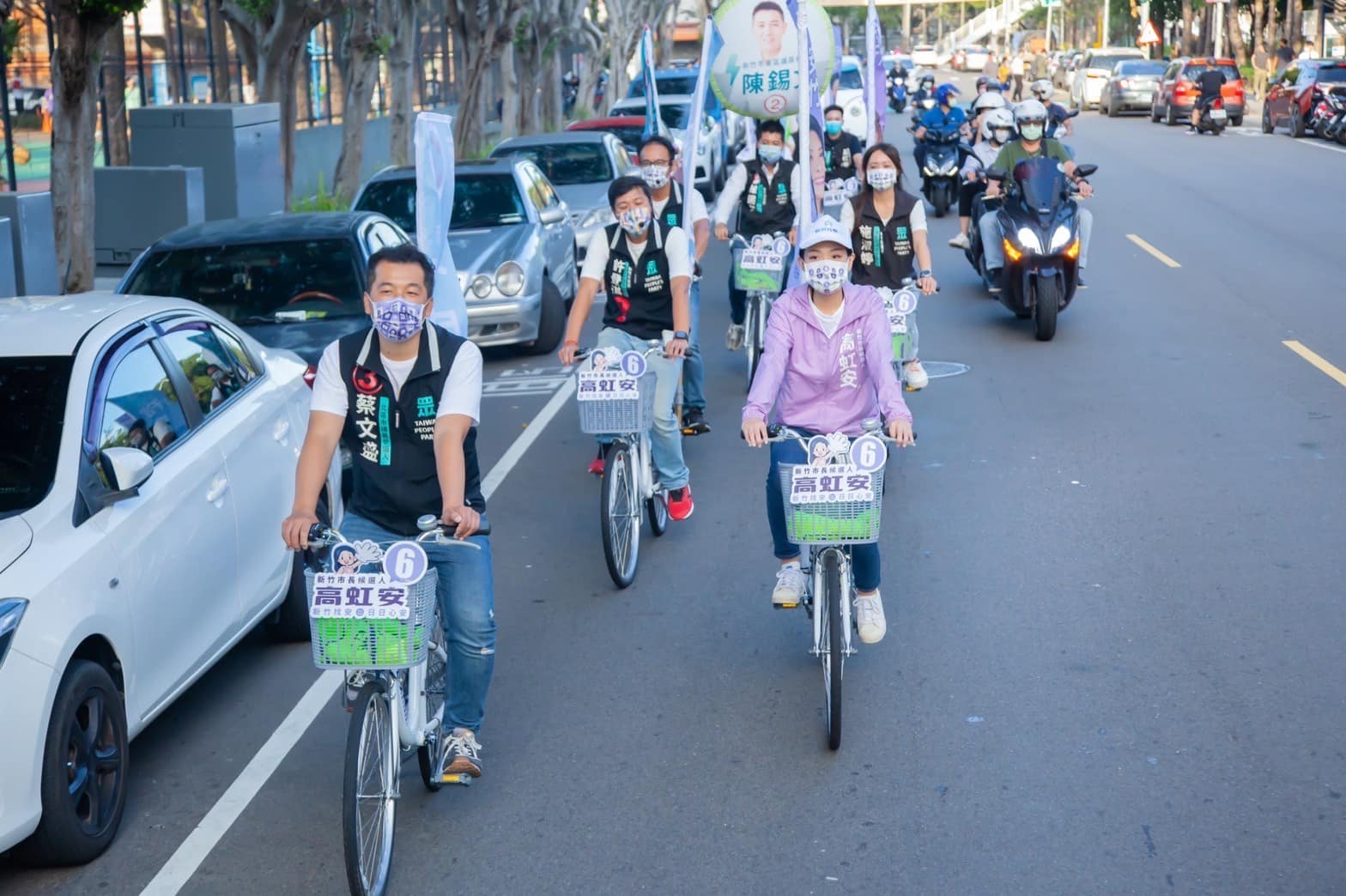
Ann Kao campaigning on a bicycle. Photo credit: Ann Kao/Facebook
If the Lin plagiarism scandal meant that the DPP was more heavily hit by scandals in the first half of the election cycle, the corruption charges facing KMT and TPP politicians may have resulted in the pan-Blue camp facing more scandal in the latter half of the election cycle.
At the same time, despite the prevalence of these scandals, it may not be an obstacle to such politicians winning, with past polling suggesting that Kao and Chung are highly competitive candidates. This perhaps indicates how deeply rooted corruption has been in Taiwanese politics historically, that these charges do not prove obstacles to candidates winning office.


